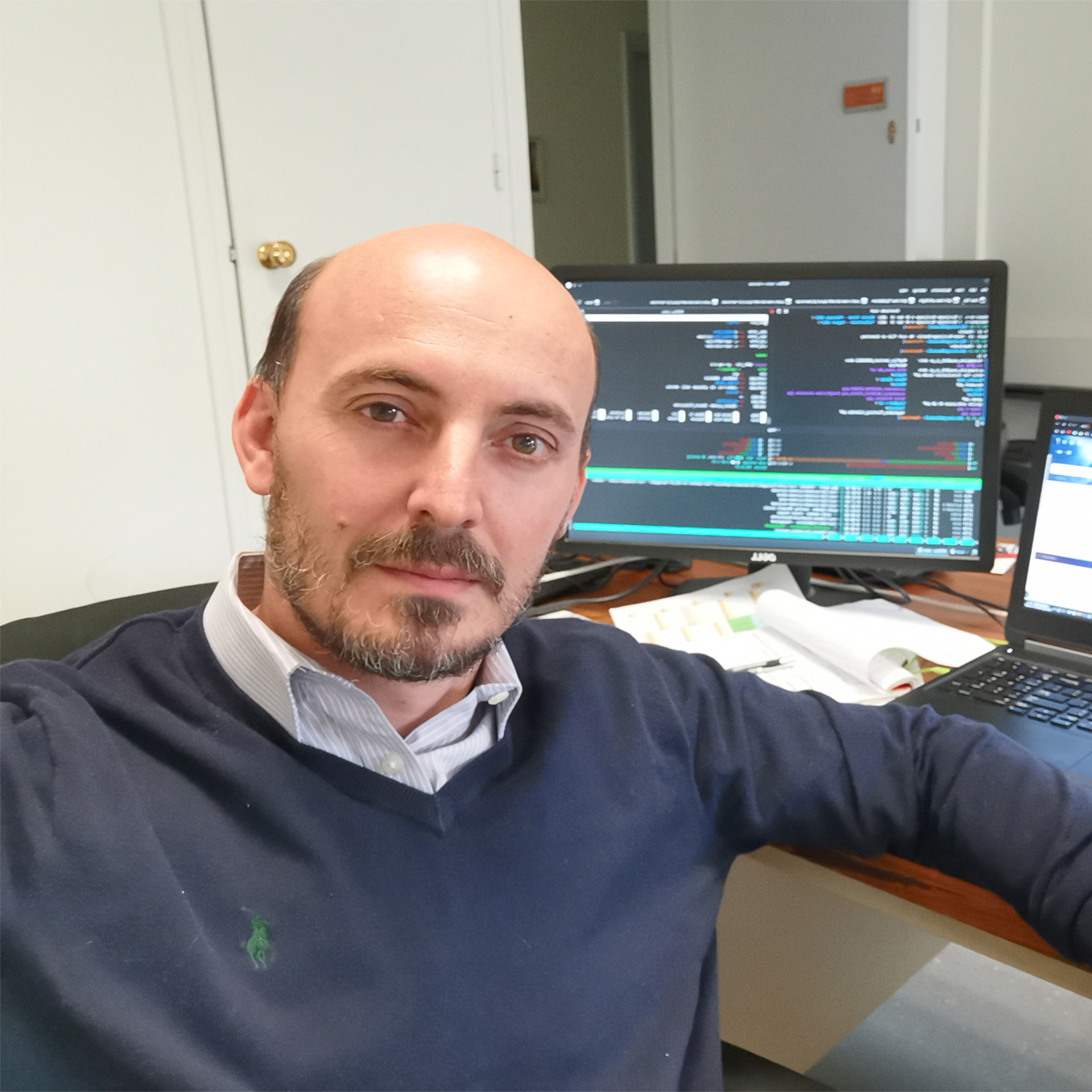Posted on October 31, 2025 by College of Sciences

Nicolas Large, Ph.D., HDR, Associate Dean for Graduate Studies, College of Sciences Office of the Dean
Please tell us about yourself
I'm an Associate Professor in the Department of Physics and Astronomy and currently serve as Associate Dean for Graduate Studies in the College of Sciences. I earned a dual PhD in Physics from France and Spain, then completed two postdoctoral appointments in the U.S.—first at Rice University, then at Northwestern University—before joining The University of Texas at San Antonio. I knew I wanted to be a physicist since I was 12. Before that, I wanted to be a historian, but I realized I didn't like reading or writing... which is ironic, since now I spend most of my time doing exactly that!
I'm originally from France, and having completed my education in Europe, the U.S. always appeared to me as the "land of opportunities." That perspective shaped both my professional journey and my passion for helping students and colleagues pursue their own goals.
What did your journey to UT San Antonio look like?
After my postdoctoral work at Rice and Northwestern, I was drawn to The University of Texas at San Antonio because it was (and still is) an institution in transition—a place actively defining its identity as a major research university. Joining a university that's growing and evolving means having the chance to make a real impact and help shape its future, which I find far more rewarding than joining a long-established institution where change moves slowly.
What do you enjoy most about your area of study?
My research focuses on nanophysics—studying the interactions between light and matter at the nanoscale using computational approaches. I grew up with some of the very first personal computers; by the age of 10, I was building PCs from scratch, coding in batch, and playing video games in DOS with my younger brothers. So, Computational Physics became a natural extension of my twin passions for physics and computers.
I love the creativity involved in developing new simulation models to explore phenomena that are too small to see directly. It's like having a microscope made of math and code.
What are some of the most notable research projects that you've been involved in?
Much of my recent work focuses on plasmon-phonon and plasmon-exciton interactions—essentially how light couples with vibrations or excitations in materials at the nanoscale. These topics are of great interest to the Department of the Navy, which has funded several of my recent projects and supported collaborations with the U.S. Naval Research Laboratory.
Beyond that, I've led or contributed to projects exploring hybrid nanostructures for next-generation photonic and quantum devices. What's exciting is that the same principles can be applied across diverse fields, from advanced sensing and energy harvesting to quantum information science.
What is your proudest moment with the College of Sciences or in general?
Seeing my students grow—scientifically, personally, and professionally—is by far the most rewarding part of my career. Watching them land great jobs, build successful careers, and contribute to science makes me incredibly proud. I often say I have three kids (Logan, Alison, and Ryan), but now I also have a growing number of "academic children."
Describe your leadership role and how it will help support students, faculty, and/or staff in COS.
As Associate Dean for Graduate Studies, I help ensure that our graduate students and programs thrive. My role is to advocate for their needs, streamline processes, and strengthen our partnerships with offices across the university to support recruitment, retention, and student success. I also work closely with faculty and staff to improve communication and collaboration across departments. Ultimately, it's about helping our community function efficiently and equitably so we can focus on what really matters—teaching, learning, and discovery.
What have you enjoyed most about your role so far?
I've really enjoyed working with people across all corners of the college—faculty, staff, and students from so many different fields. COS is full of smart, passionate individuals, and seeing how everyone contributes in their own way to the college's mission is inspiring.
What has been the most rewarding part of your work in this role?
The most rewarding part is helping solve problems that make life a little easier for others—whether that's improving communication, clarifying policies, or finding creative ways to support student success.
How would you spend your ideal Saturday?
If the weather is clear, you'll find me out under the stars with my telescope, capturing deep-space images. While my research focuses on the *very small* (nanophysics), my hobby turns to the *very big*—astrophotography. It's a perfect balance between science and art, and something I now share with my son Logan.
What are your book recommendations?
I enjoy science-fiction and fantasy books—works that transport you far away from our daily life. On the science fiction shelves, I'd recommend The Expanse book series, you'll find a perfect blend of science fiction, political thriller, and very-well developed characters. For Fantasy, nothing beats JRR Tolkien's Middle Earth work.

